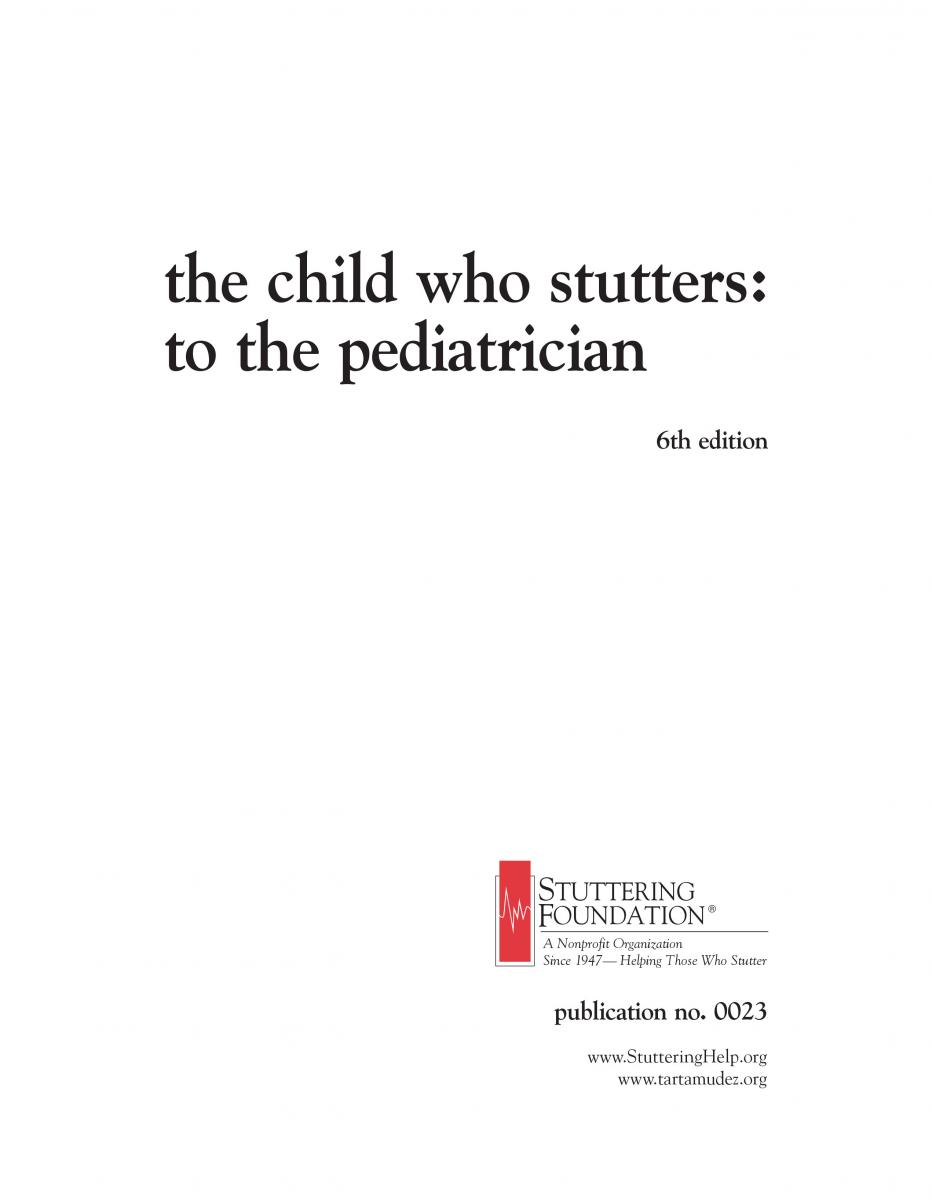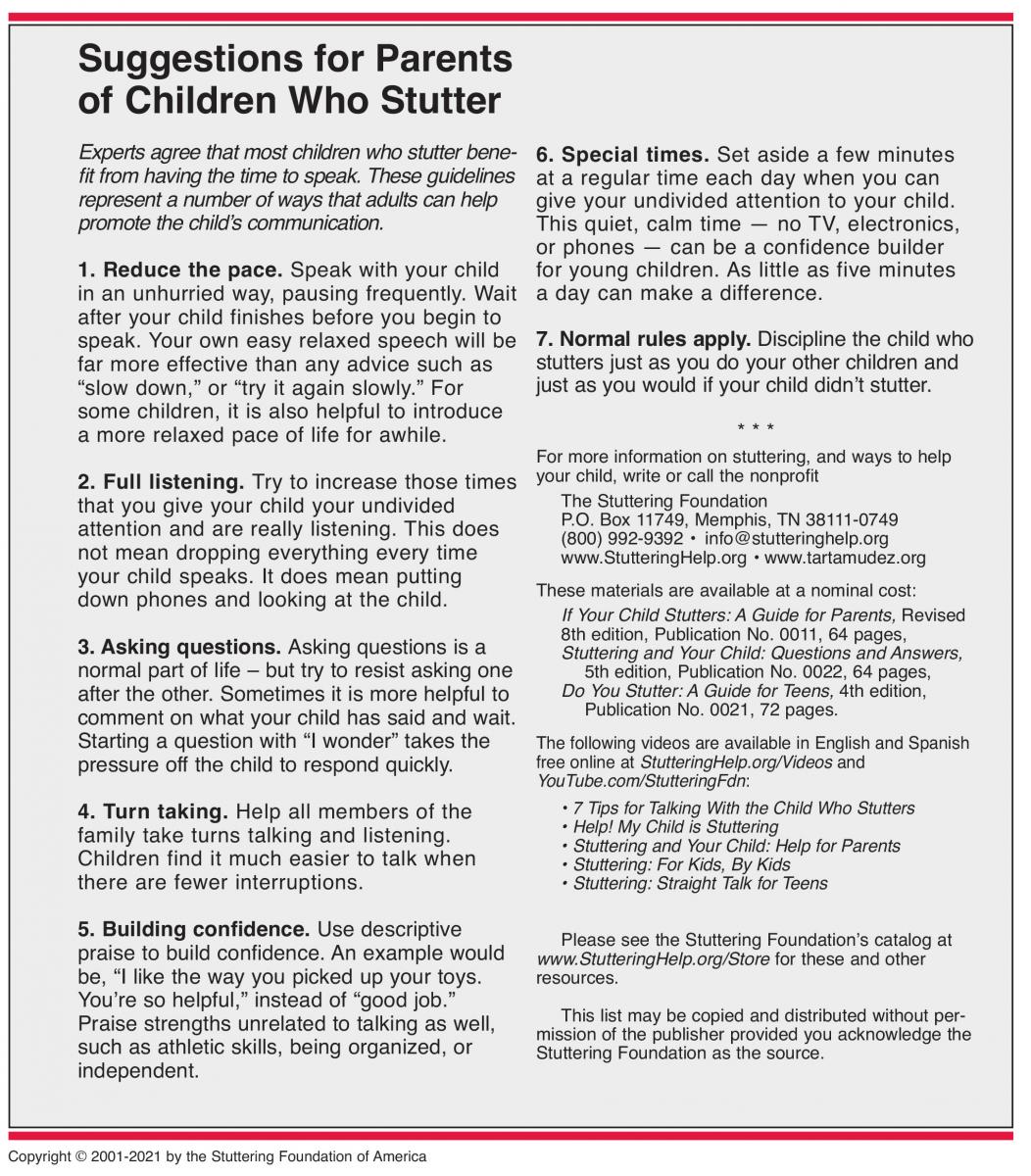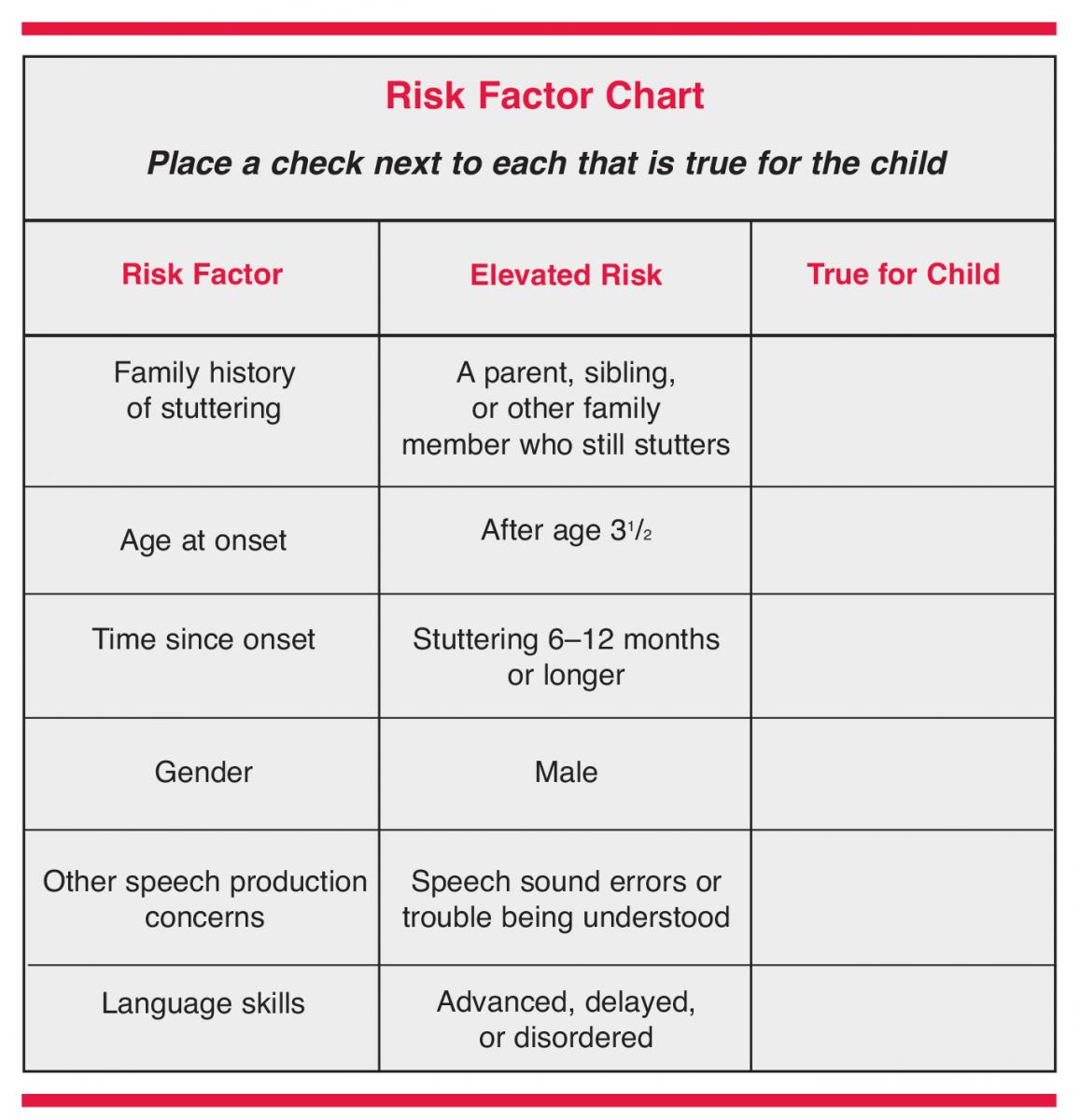 Now in its 6th edition, The Child Who Stutters: To the Pediatrician is hot off the press and has been sent to every pediatrician in the country by the Stuttering Foundation.
Now in its 6th edition, The Child Who Stutters: To the Pediatrician is hot off the press and has been sent to every pediatrician in the country by the Stuttering Foundation.
The September 2021 edition includes updated references and important edits by Ellen M. Kelly, Ph.D., and stimulating new research from the upcoming book, Stuttering: Foundations and Clinical Applications, third edition (Yairi & Seery, in press).
This new edition details the latest research needed to understand stuttering and translates that theory into simple-to-follow, expeditious practice.
It urges pediatricians and parents to exploit the window of opportunity for helping to prevent stuttering from becoming a lifelong problem.
A pediatrician in Washington state declared that The Child Who Stutters: To the Pediatrician is “one of the most helpful pieces” they had “been sent” in “27 years of private practice” and another from Maryland rejoiced that they are “so pleased to be able to offer better support and guidance to concerned parents.”
“Early intervention can truly help prevent the problem from progressing,” Katie Fine, M.D. affirmed the book’s advice, and “I refer [concerned parents] to a speech-language pathologist right away.”
The Child Who Stutters: To the Pediatrician stresses that preschool stuttering deserves accurate diagnosis and treatment by a speech-language pathologist. To that end, it offers pediatricians concrete guidelines, in text and useful diagrams, on how to counsel parents with a child with typical disfluencies, one with milder stuttering, and one with more severe stuttering.
To offer even more convenient information, this edition contains QR codes that direct readers to the physician's page and resources for parents available for free on www.StutteringHelp.org. In essence, a key purpose of the book is to make sure concerned parents receive immediate help.
This book replaces the cliché “don’t worry, your child will outgrow stuttering” approach with a proactive mindset and modus operandi that ensure pediatricians refer the child who needs treatment to a speech-language pathologist in a timely way. Referral “before the child has developed a serious social and emotional response to stuttering,” the etiology section stresses, is important for more “positive outcomes.”
Although the “first signs of stuttering gradually diminish and then disappear in most children who stutter,” a full one percent of the entire adult population “is left with a long-term problem.” This book shows pediatricians and parents that stuttering deserves the same time, consideration, and punctual referral to a specialist during a doctor’s office visit that any other health concern with serious implications would receive.


From the Fall 2021 Magazine






 Podcast
Podcast Sign Up
Sign Up Virtual Learning
Virtual Learning Online CEUs
Online CEUs Streaming Video Library
Streaming Video Library